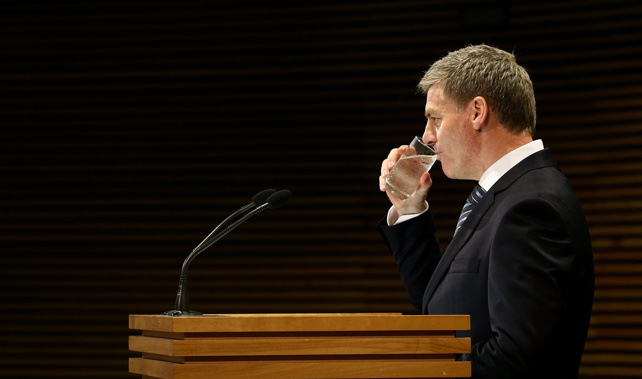
Opposition is steadily mounting to the government's policy announcement that it will increasing the eligibility age for superannuation from 65 to 67 - but not for another twenty years.
Prime Minister Bill English announced the scheme yesterday afternoon, and pledged to legislate on Super after the next election with the intention of phasing the increase in after 2037.
Changes will not affect anyone born on or before 30 June 1972.
English has ruled out means-testing for Super, changing the way payments are made, or lowering the eligibility age to 60 for Maori and Pacific people.
Government ally David Seymour, leader of the ACT Party, has been scathing in his reaction to National's policy
"The announcement that they're going to do nothing about this policy for twenty years is confusing," he said. "I can't tell if [Bill English] is taking the piss or not."
Seymour argues if National were serious about making change, it would have started doing it earlier.
"Real leadership means looking into the future and confronting our challenges rather than simply allowing them to mount up over time."
Leader of New Zealand First Winston Peters, on the other hand, is claiming credit for the government's move on Super, saying they are listening to his party.
"It's positive and it shows you that even though you can be in opposition, you can change policy and it has happened," Peters said.
However, Peters describes the policy laid out by the Prime Minister as "arrogant", and claiming he was "panicked" into making the scheme public to quell uncertainty.
"They've been hit with a massive controversy from the public in the last few days and are trying to look responsible," Peters alleges. "Now, it's the ultimate of arrogance to start saying you're going to bind the parliament as far ahead as 2037."
Labour Party leader Andrew Little dismissed the announcement yesterday as being, "totally political".
"It looks like a ham-fisted, completely botched attempt to deal with the superannuation issue," he said. "It's very clumsy."
Little told Rachel Smalley this morning that Labour is still committed to keeping the superannuation age the same - a historic reversal compared to other Labour leaders.
"The good thing is that it has been endorsed from the party and it is the party policy, and for very good reason - it comes from my own personal experience and no doubt the experience of other Labour Party people," he said.
He is, however, open to increasing the residency requirement for eligibility in the scheme from 10 years to 20.
"If you've recently arrived and you haven't contributed your taxes during the whole of your working life, it gets pretty hard to say that it's fair that you should get the full whack."
Labour is backed in their position in keeping the eligibility age at 65 by Council of Trade Unions president Richard Wagner, who said the age rise would be too tough for people working labor intensive jobs.
"This policy is being created in a context of government that doesn't like to spend money on people whether it be health, education or retirement," he said.
University of Auckland researcher Michael Littlewood concurs with belief that the age rise is good political game-playing from National, but points out that it has been announced with "no data other than what its cost is likely to be, but no data on the implications to the labour force, immigration, or workforce participation rates."
ANZ's chief economist Cameron Bagrie argued to Mike Hosking that to maintain the status quo, Treasury would have to make choices in regard to education, conservation, other core government services, and consider increasing tax rates or borrowing money.
"I think the message here is that we've made small marginal tweak that is flagging very clearly that we need to do something, and we need to do something over time," he said.
Take your Radio, Podcasts and Music with you









